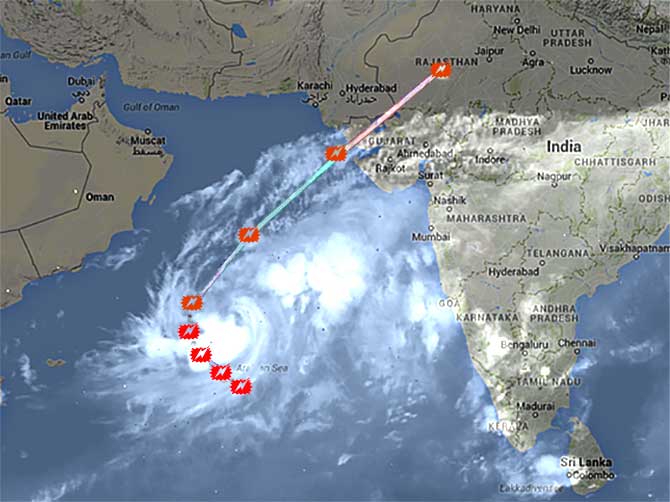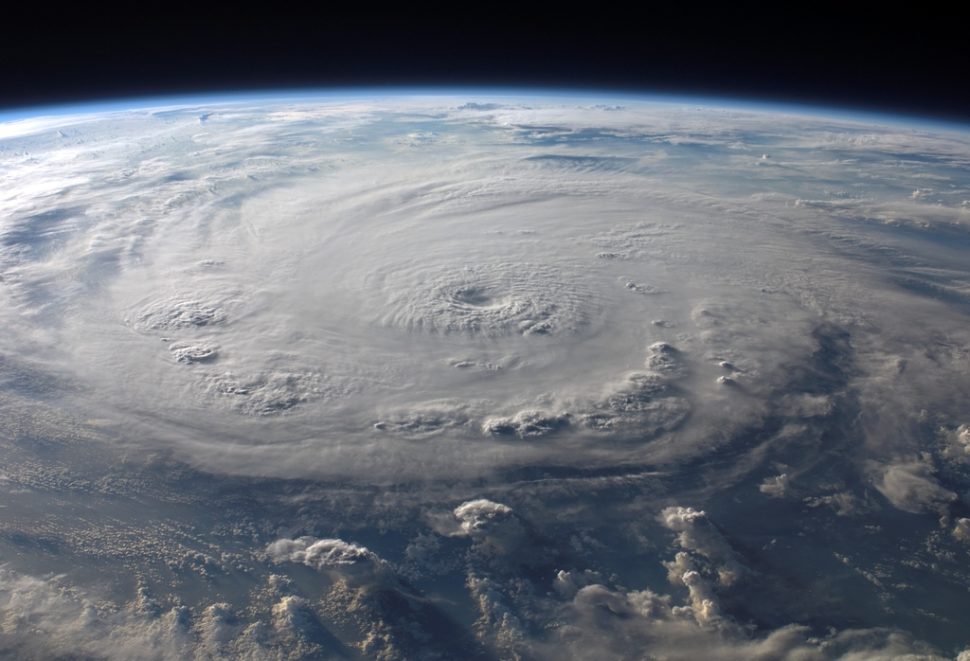A recent study reveals that extreme cyclones formed in the Arabian Sea are proof of climate change.
A study conducted by researchers from Princeton University and the National Oceanic and Atmospheric Administration (NOAA) suggests that cyclone formations in the Arabian Sea were caused by global warming–an alleged proof of climate change.
In October 2014, a cyclone unusually formed off the west coast of India. The cyclone that was then named Nilofar caused flash floods in the northeastern regions of Oman, killing four people. It was the first extremely severe cyclonic storm (ESCS) to appear in the Arabian Sea after the monsoon season in South Asia.
A year after Nilofar wreaked havoc, two other cyclones hit the South Asian region in a span of one week. Both Megh and Chapala made landfall in Yemen as ESCS in 2015, killing twenty-six people and rendering tens of thousands homeless.

For the record, the Arabian Sea, which is situated between Yemen, Oman, and India, rarely experiences cyclones late in the monsoon season. The events stirred the interest of weather scientists, particularly Hiroyuki Murakami from Princeton University.
Proof of #ClimateChange in the #ArabianSea revealed in a new study.Click To TweetCyclones in the Arabian Sea: Proof of Climate Change?
Shortly after the catastrophic storms of 2015, the researchers conducted a study and analyzed recorded simulations of both global and regional cyclone cycles to determine the cause of the unusual weather disturbances.
Murakami and his colleagues used a highly sophisticated climate model to be able to compare the conditions in 2015 to conditions in 1860, a period when humans still have smaller carbon footprints. Surprisingly, the researchers found that 64 percent of the cyclone risk in the Arabian Sea was due to climate change.
“We’re seeing that human activity affects not only climate but shorter events like rainfall and cyclones,” Murakami said.
James Kossin from NOAA pointed out that the findings put the Arabian Sea at a particular risk since the geographical location gives cyclones nowhere to go but the land. He went on to say:
“These results are striking and add to the large volume of information connecting human activities to tropical cyclone behavior.”
While the results of the study are quite alarming, the researchers said that it is still difficult to accurately project cyclone occurrences for a defined location at a specific time.
“This may be the first time that we see synchronicity between a modeled projection and real observations of storm activity in a specific region during a specific season,” Murakami added. “It is still challenging to predict the year in which an ESCS will occur in the future.”
However, Murakami wanted to emphasize that the probability of cyclone formations in the Arabian Sea is more likely to increase due to pre-industrial conditions in the next few years. If the research holds, not only would these storms be proof of climate change, but researchers warn that the relevant nations might suffer massive economic losses, especially those regions made vulnerable by poverty.
“Large economic losses would be expected in Africa, the Middle East, and South Asia along the Arabian Sea. These countries are highly sensitive to storm hazards and impacts due to a lack of adaption strategies. These regions experience comparatively low climatological storm exposure,” Murakami explained.










Comments (0)
Least Recent